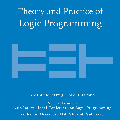Metamodeling is a general approach to expressing knowledge about classes and properties in an ontology. It is a desirable modeling feature in multiple applications that simplifies the extension and reuse of ontologies. Nevertheless, allowing metamodeling without restrictions is problematic for several reasons, mainly due to undecidability issues. Practical languages, therefore, forbid classes to occur as instances of other classes or treat such occurrences as semantically different objects. Specifically, meta-querying in SPARQL under the Direct Semantic Entailment Regime (DSER) uses the latter approach, thereby effectively not supporting meta-queries. However, several extensions enabling different metamodeling features have been proposed over the last decade. This paper deals with the Metamodeling Semantics (MS) over OWL 2 QL and the Metamodeling Semantic Entailment Regime (MSER), as proposed in Lenzerini et al. (2015) and Lenzerini et al. (2020); Cima et al. (2017). A reduction from OWL 2 QL to Datalog for meta-querying was proposed in Cima et al. (2017). In this paper, we experiment with various logic programming tools that support Datalog querying to determine their suitability as back-ends to MSER query answering. These tools stem from different logic programming paradigms (Prolog, pure Datalog, Answer Set Programming, Hybrid Knowledge Bases). Our work shows that the Datalog approach to MSER querying is practical also for sizeable ontologies with limited resources (time and memory). This paper significantly extends Qureshi & Faber (2021) by a more detailed experimental analysis and more background. Under consideration in Theory and Practice of Logic Programming (TPLP).
翻译:暂无翻译





